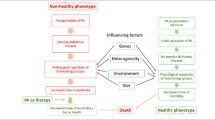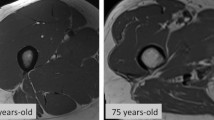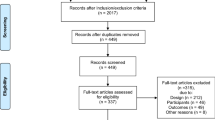Abstract
Purpose of Review
Lung cancer is increasingly a disease of the elderly. Historically, the information on how best to treat these patients is scant, but over recent years, there have been increasing data to support both systemic and targeted treatment as would be offered to younger patients. This paper aims to summarise the considerations behind this.
Recent Findings
The introduction of a screening tool to help understand the overall health of patients will ensure that older cancer patients are considered for all active anti-cancer therapies. These geriatric assessment tools include several important domains such as nutrition, cognition, social support, comorbidities and performance status.
For those patients who may not be suitable for aggressive therapies such as surgical resection, lower morbid radical therapies such as SBRT or thermal ablation provides a useful alternative.
Summary
It is clear that in previous years, the elderly patient with lung cancer did not receive treatment comparable to younger patients. In the advent of modern diagnostic and therapeutic modalities, however, this approach is no longer sustainable. With careful selection of patients and optimisation, the elderly patient can now be offered similar treatments to improve survival in an ageing population.
Similar content being viewed by others
References
Papers of particular interest, published recently, have been highlighted as: • Of importance
Wong MCS, Lao XQ, Ho KF, Goggins WB, Tse SLA. Incidence and mortality of lung cancer: global trends and association with socioeconomic status. Nat Sci Rep. 2017;7(1):14300.
Cancer Research UK, http://www.cancerresearchuk.org/health-professional/cancer-statistics/statistics-by-cancer-type/lung-cancer/survival. Accessed February 2018.
Cancer Research UK, http://www.cancerresearchuk.org/health-professional/cancer-statistics/statistics-by-cancer-type/lung-cancer/incidence. Accessed February 2018.
Office of National Statistics. Overview of the UK population: July 2017 https://www.ons.gov.uk/peoplepopulationandcommunity/populationandmigration/populationestimates/articles/overviewoftheukpopulation/july2017. Accessed February 2018.
• AJ D, Gardner JF, Seal B, et al. Population-based estimates of survival benefit associated with combined modality therapy in elderly patients with locally advanced non-small cell lung cancer. J Thorac Oncol. 2011;6:934–41. This article summarises the role of combined chemoradiotherapy in the elderly population.
Lim E, Baldwin D, Beckles M, Duffy J, Entwisle J, Faivre-Finn C, et al. Guidelines on the radical management of patients with lung cancer. Thorax. 2010;65(Suppl III):iii1–iii27.
Brunelli A, Charloux A, Bolliger CT, Rocco G, Sculier JP, Varela G, et al. European Respiratory Society and European Society of Thoracic Surgeons joint task force on fitness for radical therapy. ERS/ESTS clinical guidelines on fitness for radical therapy in lung cancer patients (surgery and chemo-radiotherapy). Eur Respir J. 2009;34:17–41.
Brunelli A, Kim AW, Berger KI, Addrizzo-Harris DJ. Physiologic evaluation of the patient with lung cancer being considered for resectional surgery. Diagnosis and management of lung cancer, 3rd ed: American College of Chest Physicians Evidence-based clinical practice guidelines. Chest. 2013;143(5):e166S–90S.
Weder W, Moghanaki D, Stiles B, Siva S, Rocco G. The great debate flashes: surgery versus stereotactic body radiotherapy as the primary treatment of early-stage lung cancer. Eur J Cardiothorac Surg. 2018;53(2):295–395.
Falcoz PE, Conti M, Brouchet L, Chocron S, Puyraveau M, Mercier M, et al. The thoracic surgery scoring system (Thoracoscore): risk model for in-hospital death in 15,183 patients requiring thoracic surgery. J Thorac Cardiovasc Surg. 2007;133(2):325–32.
Salati M, Brunelli A. Risk stratification in lung resection. Curr Surg Rep. 2016;4(11):37.
Wilson H, Gammon D, Routledge T, Harrison-Phipps K. Clinical and quality of life outcomes following anatomical lung resection for lung cancer in high-risk patients. Ann Thorac Med. 2017;12(2):83–7.
Dillman RO, Zusman DR, McClure SE. Surgical resection and long-term survival for octogenarians who undergo surgery for non-small-cell lung cancer. Clin Lung Cancer. 2009;10(2):130–4.
Tutic-Horn M, Gambazzi F, Rocco G, Mosimann M, Schneiter D, Opitz I, et al. Curative resection for lung cancer in octogenarians is justified. J Thorac Dis. 2017;9(2):296–302.
Kim TH, Park B, Cho JH, Kim HK, Choi YS, Kim KM, et al. Pneumonectomy for clinical stage I non-small cell lung cancer in elderly patients over 70 years of age. Korean J Thorac Cardiovasc Surg. 2015;48(4):252–7.
Eguchi T, Bains S, Lee MC, Tan KS, Hristov B, Buitrago DH, et al. Impact of increasing age on cause-specific mortality and morbidity in patients with stage I non–small-cell lung cancer: a competing risks analysis. J Clin Oncol. 2017;35(3):281–90.
Arbane G, Tropman D, Jackson D, Garrod R. Evaluation of an early exercise intervention after thoracotomy for non-small cell lung cancer (NSCLC), effects on quality of life, muscle strength and exercise tolerance: randomised controlled trial. Lung Cancer. 2011;71:229–34.
Salvi R, Meoli I, Cennamo A, Perrotta F, Saverio Cerqua F, Montesano R, et al. Preoperative high-intensity training in frail old patients undergoing pulmonary resection for NSCLC. Open Med. 2016;11(1):443–8.
Nici L, Donner C, Wouters E, Zuwallack R, Ambrosino N, Bourbeau J, et al. American Thoracic Society/European Respiratory Society Statement on Pulmonary Rehabilitation. Am J Respir Crit Care Med. 2006;173:1390–413.
Foglio K, Bianchi L, Bruletti G, Porta R, Vitacca M, Balbi B, et al. Seven-year time course of lung function, symptoms, health-related quality of life, and exercise tolerance in COPD patients undergoing pulmonary rehabilitation programs. Respir Med. 2007;101(9):1961–70.
Stefanelli F, Meoli I, Cobuccio R, Curcio C, Amore D, Casazza D, et al. High-intensity training and cardiopulmonary exercise testing in patients with chronic obstructive pulmonary disease and non-small-cell lung cancer undergoing lobectomy. Eur J Cardiothorac Surg. 2013;44(4):e260–5.
McCloskey P, Balduyck B, Van Schil PE, Faivre-Finn C, O’Brien M. Radical treatment of non-small cell lung cancer during the last 5 years. Eur J Cancer. 2013;49:1555–64.
Chang JY, Senan S, Paul MA, Mehran RJ, Louie AV, Balter P, et al. Stereotactic ablative radiotherapy versus lobectomy for operable stage I non-small-cell lung cancer: a pooled analysis of two randomised trials. Lancet Oncol. 2015;16(6):630–7.
Ma L, Xiang J. Clinical outcomes of video-assisted thoracic surgery and stereotactic body radiation therapy for early-stage non-small cell lung cancer: a meta-analysis. Thoracic Cancer. 2016;7(4):442–51.
• Karam SD, Horne ZD, Hong RL, McRae D, Duhamel D, Nasr NM. Hypofractionated stereotactic body radiation therapy for elderly patients with stage IIB-IV nonsmall cell lung cancer who are ineligible for or refuse other treatment modalities. Lung Cancer. 2014;5:59–66. As a minimally invasive radical therapy, this article summarises the use of SBRT in the elderly.
Videtic GM, Donington J, Giuliani M, Heinzerling J, Karas TZ, Kelsey CR, et al. Stereotactic body radiation therapy for early-stage non-small cell lung cancer: executive summary of an ASTRO evidence-based guideline. Pract Radiat Oncol. 2017;7(5):295–301.
Walters S, Maringe C, Coleman MP, Peake MD, Butler J, Young N, et al. Lung cancer survival and stage at diagnosis in Australia, Canada, Denmark, Norway, Sweden and the UK: a population-based study, 2004–2007. Thorax. 2013;68:551–64.
Eberhardt WEE, De Ruysscher D, Weder W, Le Pe’choux C, De Leyn P, Hoffmann H. 2nd ESMO consensus conference in lung cancer: locally advanced stage III non-small-cell lung cancer. Ann Oncol. 2015;26:1573–88.
Dawe DE, Christiansen D, Swaminath A, Ellis PM, Rothney J, Rabbani R, et al. Chemoradiotherapy versus radiotherapy alone in elderly patients with stage III non-small cell lung cancer: a systematic review and meta-analysis. Lung Cancer. 2016;99:180–5.
Cardenal F, Nadal E, Jove M, Faivre-Finn C. Concurrent systemic therapy with radiotherapy for the treatment of poor-risk patients with unresectable stage III non-small-cell lung cancer: a review of the literature. Ann Oncol. 2015;26(2):278–88.
Hung A, Mullins CD. Relative effectiveness and safety of chemotherapy in elderly and nonelderly patients with stage III colon cancer: a systematic review. Oncologist. 2013;18(1):54–63.
Stinchcombe TE, Zhang Y, Vokes EE, Schiller JH, Bradley JD, Kelly K, et al. Pooled analysis of individual patient data on concurrent chemoradiotherapy for stage III non-small-cell lung cancer in elderly patients compared with younger patients who participated in US National Cancer Institute Cooperative Group Studies. J Clin Oncol. 2017;35(25):2885–92.
• Antonio M, Saldaña J, Linares J, Ruffinelli JC, Palmero R, Navarro A, Arnaiz MD, Brao I, Aso S, Padrones S, Navarro V, González-Barboteo J, Borràs JM, Cardenal F, Nadal E. Geriatric assessment may help decision-making in elderly patients with inoperable, locally advanced non-small-cell lung cancer. British Journal of Cancer 2018; Summarises the use of the GA in determining which elderly patients should receiver anti-cancer treatment.
Vaz Fragoso CA, McAvay G, Van Ness PH, Metter EJ, Ferrucci L, Yaggi HK, et al. Aging-related considerations when evaluating the forced expiratory volume in 1 second (FEV1) over time. J Gerontol Ser A Biol Sci Med Sci. 2016;71(7):929–34.
West M, Jack S, Grocott MP. Perioperative cardiopulmonary exercise testing in the elderly. Best Pract Res Clin Anaesthesiol. 2011;25(3):427–37.
Schulkes KJ, Hamaker ME, van den Bos F, van Elden LJ. Relevance of a geriatric assessment for elderly patients with lung cancer—a systematic review. Clin Lung Cancer. 2016;17(5):341–9.
Schulkes KJ, Souwer ET, Hamaker ME, Codrington H, van der Sar-van der Brugge S, Lammers JJ, et al. The effect of a geriatric assessment on treatment decisions for patients with lung cancer. Lung. 2017;195(2):225–31.
Ono T, Nakamura T, Yamaguchi H, Azami Y, Takayama K, Suzuki M, et al. Clinical results of proton beam therapy for elderly patients with non-small cell lung cancer. Radiat Oncol. 2018;13:19.
Hiraki T, Gobara H, Iguchi T, Fujiwara H, Matsui Y, Kanazawa S. Radiofrequency ablation for early-stage nonsmall cell lung cancer. Biomed Res Int. 2014;2014:152087.
Chen T, Jin J, Chen S. Clinical assessment of computed tomography guided radiofrequency ablation in the treatment of inoperable patients with pulmonary tumors. J Thorac Dis. 2017;9(12):5131–42.
Alexander ES, Machan JT, Ng T, Breen LD, DiPetrillo TA, Dupuy DE. Cost and effectiveness of radiofrequency ablation versus limited surgical resection for stage I non-small-cell lung cancer in elderly patients: is less more? J Vasc Interv Radiol. 2013;24(4):476–82.
Author information
Authors and Affiliations
Corresponding author
Ethics declarations
Conflict of Interest
D.J. McCracken and A.J. Moore declare no conflict of interest.
Human and Animal Rights and Informed Consent
This article does not contain any studies with human or animal subjects performed by any of the authors.
Additional information
This article is part of the Topical Collection on Pulmonology and Respiratory Care
Rights and permissions
About this article
Cite this article
McCracken, D.J., Moore, A.J. Lung Cancer in the Elderly—Important Considerations When Assessing Fitness for Treatment. Curr Geri Rep 7, 169–173 (2018). https://doi.org/10.1007/s13670-018-0248-y
Published:
Issue Date:
DOI: https://doi.org/10.1007/s13670-018-0248-y




